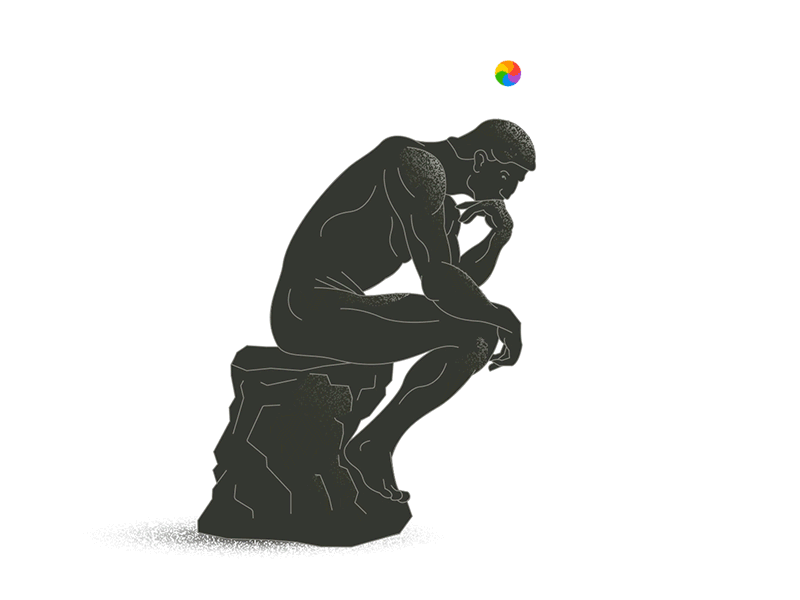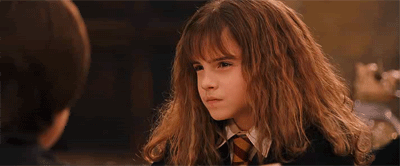Now is the time to reflect on how I progressed against my goals.
1. To use a knowledge building approach to engage online learners
Looking back at this goal, I wonder how exactly do you measure engagement? There are all kinds of analytical tools I could use in Knowledge Forum (our online Knowledge Building environment) to measure the quantity of posts, the frequency of posts, the amount of times that a student has read a post, or edited their own. However, it is my feeling that a quantitative analysis does not necessarily answer the question of 'Does this engage learners?'. All that would tell me was that they have used the tool.
To know whether students felt that Knowledge Building was valuable for their learning I think it is important to go to students “If you want to know how people understand their world and their lives, why not talk with them?” (Kvale & Brinkman, 2009).
The anecdotal evidence from students was that Knowledge Building was in fact very valuable for them and a key part of coming to a higher more perceptive understanding of issues in art history. It was vital for students have dialogue with each other, as shown by these reflective statements from my students:
The anecdotal evidence from students was that Knowledge Building was in fact very valuable for them and a key part of coming to a higher more perceptive understanding of issues in art history. It was vital for students have dialogue with each other, as shown by these reflective statements from my students:
"-Knowledge forum provided me with insight into other peoples thinking and ideas which I
perhaps would not otherwise thought of and was also able to reflect on my own thinking.
... Questions such as ‘How can media impact on meanings in artworks?’ posted by XXXXXX XXXXXXXX helped me to explore areas and thus form my ideas for this assignment while the post by XXXXXXXX XXXXXXX ‘process impacting meaning’ helped to clarify my ideas as well as being useful to refer to."
"Being able to communicate and read my classmates contributions on Knowledge Forum helped to deepen my understanding of how theories influenced the artistic style of the Renaissance. ... Having access to another perspective helped me gain an overall deeper understanding and helped me consider aspects of Humanism I hadn’t considered before."
Students considered the diversity of thinking that a knowledge building community provides as vital to their ability to come to a really considered conclusion (an important skill in art history).
I think that the achievement data I have to hand so far also helps to triangulate the validity of the knowledge building approach. The students that really dug deep into the knowledge building process saw an improvement in their results from level two art history and similar subjects, going from Achieved to endorsed with Merit and Excellence. The knowledge building process seemed to naturally provide evidence for things like 'critical thinking', 'come to an insightful conclusion'.
A particular success was a student who went from simply getting achieved at level 2, to achieving the majority or their internals at excellence and even sitting the scholarship exam. This student remarked that dealing with ideas the way that we did in knowledge building worked for them.
After completing my Master's thesis, I realised that there was a need to contextualise Knowledge Building ideas and approaches for NZ.
Essentially, I discovered when reviewing literature, that where classes had principles broken down into terms or explanations that they understood, and used those principles to guide their knowledge building and reflect on their progress and success as a knowledge building community, they were much more likely to experience success than students who had been ask to knowledge build ad. hoc, with little guidance.
This led me to try to develop resources which align Knowledge Building Principles with concepts within NZ education and concepts in Te Ao Māori. This took the form of poster explaining how knowledge building can align with concepts within Te Ao Māori for teachers and a 'Knowledge Building moves' info-graphic which teachers and learners could use to guide their next Knowledge Building moves, assess their progress and determine their next steps.
These resources are definitely just prototypes with much room for improvement. I think next year I would like to explore using them with a class and get students to feedback on them. How useful are they, what else could be included, what else are they thinking about during the knowledge building process?
I think that the achievement data I have to hand so far also helps to triangulate the validity of the knowledge building approach. The students that really dug deep into the knowledge building process saw an improvement in their results from level two art history and similar subjects, going from Achieved to endorsed with Merit and Excellence. The knowledge building process seemed to naturally provide evidence for things like 'critical thinking', 'come to an insightful conclusion'.
A particular success was a student who went from simply getting achieved at level 2, to achieving the majority or their internals at excellence and even sitting the scholarship exam. This student remarked that dealing with ideas the way that we did in knowledge building worked for them.
After completing my Master's thesis, I realised that there was a need to contextualise Knowledge Building ideas and approaches for NZ.
Essentially, I discovered when reviewing literature, that where classes had principles broken down into terms or explanations that they understood, and used those principles to guide their knowledge building and reflect on their progress and success as a knowledge building community, they were much more likely to experience success than students who had been ask to knowledge build ad. hoc, with little guidance.
This led me to try to develop resources which align Knowledge Building Principles with concepts within NZ education and concepts in Te Ao Māori. This took the form of poster explaining how knowledge building can align with concepts within Te Ao Māori for teachers and a 'Knowledge Building moves' info-graphic which teachers and learners could use to guide their next Knowledge Building moves, assess their progress and determine their next steps.
2. To use 'assessment for learning' to leverage engagement in junior and middle school classes.
This was an inquiry goal that I was very intentional with and that I feel a lot of progress was made within a short year. I am quite proud of this considering that I have 2 hours a week with my junior class, and 3 hours a week with my middle school class.
The hunch or reasoning behind this goal was that traditionally the feedback, next steps and general drive for the work has come from the teacher, which gets a bit unmanageable when dealing with a class of 20 - 30 students.
I really wanted to instill a sense of ownership for students over their work and for them to get to a place where they felt capable to determine their next steps.
The first step, as I have talked about in previous blog posts, was to make the learning more visible.
This involved the students creating their own visual diary online. I wanted to keep this manageable and easy for students, so this was just a Google Slide in the folder that they share with me. Initially my aim was simply for students to record their work in progress, so that they were able to get a sense of what was happening over time with their art. This was also useful for instilling a growth mindset (which was something that was discussed in class, regularly) in students.
I found that students really enjoyed seeing their work change, and that this was not something I had to labour to make happen.
The next step was to try to develop reflective capabilities in students. This was and is an ongoing process and needs to be quite deliberate. I found that it was necessary to schedule time for this as it really didn't happen so organically. I didn't need to put a lot of time aside, just 5 minutes at the beginning and end of most weeks for reflection and goal setting.
I discovered that while students were quite happy to go through this process, they tended to write quite generalized goals and reflections e.g. 'my goal is to draw better'.
This prompted me to think about scaffolds. I found that when students had a prompt they wrote really great reflections and questions to themselves about their work.
A recent discovery in the past few weeks, which happened mostly through luck and intuition, was peer feedback. I had decided part way through a double period to break up the session with a bit of feedback. After showing and talking with students about what good quality feedback looks like ('helpful', 'supportive', 'specific').
I asked them to give good quality feedback to two other students using a post it note. They left work they needed feedback on, and gave them two post-its with the instructions to share the love around the whole class, not just the art works they were most wowed by. The students really got it, and interestingly it was the boys that took their time to think about what the other person needed to hear and how to frame that in a helpful and supportive way e.g. 'I like the details in this drawing, but I would like to know where the light is coming from'. I think this was a hit for a number of reasons. I was not asking for a lot of writing. It was for a purpose. And I was not asking for feedback out loud (which I had tried previously with little success) which was important because our West Coast students can get a bit whakama about standing out.
It was so lovely to see the students really treasuring the feedback that they were given and carefully placing their feedback notes in to their art books.
Interestingly it has been the students who have asked to repeat this exercise. I had a gorgeous moment today where one of my boys asked if we could do the 'feedback on our drawings thing' as he had some work that he was really proud of. 💗
This is definitely something that I want to build on next year, how I can develop self and peer reflective capabilities. When I reflect on where I started, I have definitely seen an increase in engagement and ownership. Students are happily documenting their work, and putting it out their in a supportive environment for others input. It really feels like a learning culture is starting to develop and that ako - the learning from and teaching each other is being embodied in small ways.
The hunch or reasoning behind this goal was that traditionally the feedback, next steps and general drive for the work has come from the teacher, which gets a bit unmanageable when dealing with a class of 20 - 30 students.
I really wanted to instill a sense of ownership for students over their work and for them to get to a place where they felt capable to determine their next steps.
The first step, as I have talked about in previous blog posts, was to make the learning more visible.
This involved the students creating their own visual diary online. I wanted to keep this manageable and easy for students, so this was just a Google Slide in the folder that they share with me. Initially my aim was simply for students to record their work in progress, so that they were able to get a sense of what was happening over time with their art. This was also useful for instilling a growth mindset (which was something that was discussed in class, regularly) in students.
I found that students really enjoyed seeing their work change, and that this was not something I had to labour to make happen.
I discovered that while students were quite happy to go through this process, they tended to write quite generalized goals and reflections e.g. 'my goal is to draw better'.
This prompted me to think about scaffolds. I found that when students had a prompt they wrote really great reflections and questions to themselves about their work.
A recent discovery in the past few weeks, which happened mostly through luck and intuition, was peer feedback. I had decided part way through a double period to break up the session with a bit of feedback. After showing and talking with students about what good quality feedback looks like ('helpful', 'supportive', 'specific').
It was so lovely to see the students really treasuring the feedback that they were given and carefully placing their feedback notes in to their art books.
Interestingly it has been the students who have asked to repeat this exercise. I had a gorgeous moment today where one of my boys asked if we could do the 'feedback on our drawings thing' as he had some work that he was really proud of. 💗
This is definitely something that I want to build on next year, how I can develop self and peer reflective capabilities. When I reflect on where I started, I have definitely seen an increase in engagement and ownership. Students are happily documenting their work, and putting it out their in a supportive environment for others input. It really feels like a learning culture is starting to develop and that ako - the learning from and teaching each other is being embodied in small ways.




























